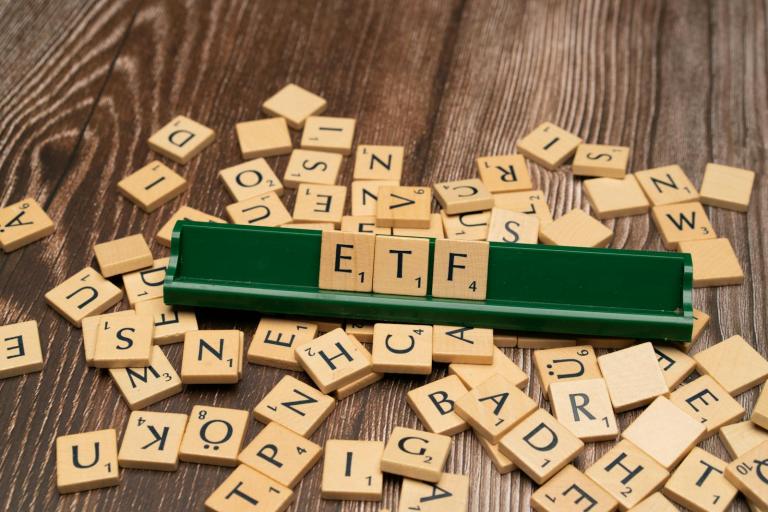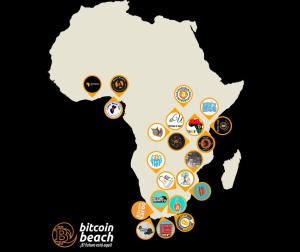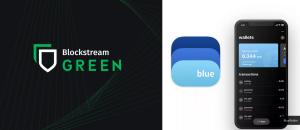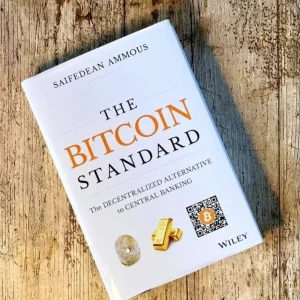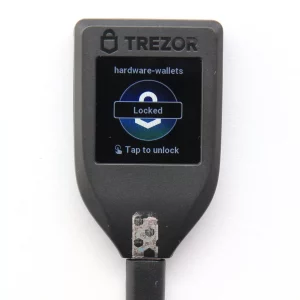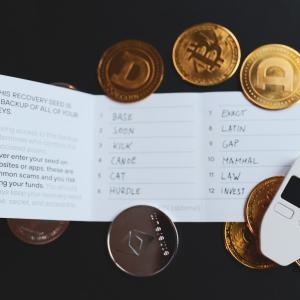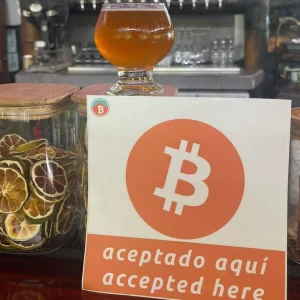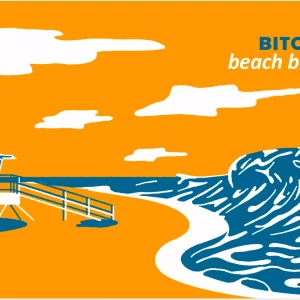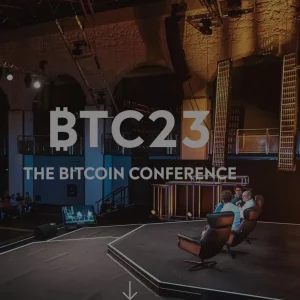A Bitcoin Exchange-Traded Fund (ETF) is a financial product that allows you to gain exposure to Bitcoin without needing to buy, store, or manage Bitcoin directly. ETFs are investment funds traded on stock exchanges, much like stocks. A Bitcoin ETF mimics the price movements of Bitcoin, allowing investors to buy shares that represent Bitcoin’s value. This offers a more accessible way for traditional investors to invest in Bitcoin, as it integrates with established financial systems.
Unlike Bitcoins which are traded on decentralized Bitcoin exchanges, Bitcoin ETFs are listed on traditional regulated securities exchanges and can be bought and sold like stocks.
Imagine you want to invest in gold, but instead of buying physical gold bars or coins, you can invest in a fund that owns lots of gold. This fund then gets converted into shares that you can trade on an exchange like stocks. A Bitcoin ETF does something similar. Instead of directly buying and holding Bitcoins (which are digital), the fund buys and holds Bitcoin in its portfolio. When you buy shares of this ETF, you’re essentially investing in a small part of that portfolio – not the actual Bitcoin itself. The value of your shares will then go up or down depending on how much one Bitcoin is worth at any given time. So if the price of Bitcoin rises, so does the value of your shares; if it falls, so does the value of your shares.
Real Bitcoin vs. Bitcoin ETF
When comparing real Bitcoin to a Bitcoin ETF, the primary difference lies in ownership and control. Holding real Bitcoin means owning the actual cryptocurrency, which can be stored in a Bitcoin wallet and transferred anywhere in the world. It gives you full control over your asset. In contrast, owning a Bitcoin ETF means holding shares of a fund that tracks the price of Bitcoin. While the ETF reflects Bitcoin’s value, you do not own the actual cryptocurrency and rely on the fund’s management.
Real Bitcoin offers 24/7/365 trading, while Bitcoin spot ETFs do not. Real Bitcoin provides permissionless access, meaning anyone can participate without needing approval, whereas a Bitcoin spot ETF requires traditional financial permissions. Bitcoin itself is verifiable on the blockchain, censorship-resistant, and seizure-resistant, allowing direct spendability. In contrast, a Bitcoin spot ETF lacks these features, being tied to traditional financial systems, which are subject to censorship, seizure, and mandatory fees. Additionally, owning Bitcoin directly allows movement without creating a taxable event, whereas transactions involving a Bitcoin spot ETF may trigger Bitcoin tax implications.
Here’s a comparison table outlining the key differences between holding real Bitcoin and investing in a Bitcoin ETF:
| Feature | Real Bitcoin | Bitcoin ETF |
|---|---|---|
| Ownership | Actual cryptocurrency owned, stored in a Bitcoin wallet, transferable globally | Shares of a fund tracking Bitcoin’s price, no actual ownership of Bitcoin |
| Control | Full control over the asset | Reliance on the fund’s management |
| Verifiability | Verifiable on the blockchain | Not verifiable on the blockchain |
| Censorship Resistance | Resistant to censorship | Subject to traditional financial system’s censorship |
| Seizure Resistance | Resistant to seizure | Subject to seizure under traditional financial systems |
| Direct Spendability | Spendable directly as Bitcoin | Not directly spendable |
| Tax Implications | Can move without creating a taxable event | Transactions may trigger Bitcoin tax implications |
| Trading Availability | 24/7/365 trading | Limited trading hours (based on the stock market) |
| Access | Permissionless, anyone can participate | Requires traditional financial permissions |
Pros of Bitcoin ETF
- Ease of Access: Bitcoin ETFs are traded on traditional stock exchanges, making it easier for investors to gain exposure to Bitcoin without needing to navigate cryptocurrency exchanges or deal with digital wallets.
- Regulation: ETFs are regulated financial products, providing a layer of security and oversight that may not be present when buying Bitcoin directly from unregulated exchanges.
- Diversification: Investors can integrate Bitcoin exposure into their broader portfolio within the same brokerage account, enhancing diversification.
Cons of Bitcoin ETF
- No Ownership: Investors do not own the actual Bitcoin, which means they miss out on the benefits of holding the real asset, such as using it as a medium of exchange or leveraging it for decentralized finance (DeFi) applications.
- Fees: Bitcoin ETFs often come with management fees, which can reduce overall returns compared to directly holding Bitcoin.
- Centralization: Bitcoin ETFs are managed by centralized institutions, which some believe contradicts the decentralized ethos of Bitcoin.
How Much is a Bitcoin ETF?
The price of a Bitcoin ETF varies depending on various factors such as market demand, supply, overall Bitcoin market trends, the fund and its structure. For example, a share of the Grayscale Bitcoin Trust (GBTC) might be priced differently from a share of the Purpose Bitcoin ETF (BTCC). The price usually mirrors the value of Bitcoin, but may also include premiums or discounts due to market factors. Generally, the price is tied to the value of the Bitcoin the ETF is designed to track. As with any investment vehicle, the value of a Bitcoin ETF can fluctuate significantly over time.
Is a Bitcoin ETF a Good Idea?
In conclusion, while a Bitcoin spot ETF may offer a convenient entry point for those looking to gain exposure to Bitcoin within the traditional financial system, it falls short of providing the full benefits that real Bitcoin ownership offers. Real Bitcoin empowers individuals with 24/7/365 trading, permissionless access, and complete control over their assets. It is verifiable on the blockchain, resistant to censorship and seizure, and can be spent directly without intermediaries.
Additionally, investment options like a Bitcoin IRA from Swan Bitcoin and Unchained Capital allow you to buy real Bitcoin directly, giving you the advantages of direct ownership. Holding real Bitcoin in a self-custody wallet incurs no management fees, unlike a Bitcoin spot ETF, which is subject to such costs. Moreover, owning Bitcoin directly avoids the taxable events that might arise from transactions involving a Bitcoin ETF.
Bitcoin ETFs often don’t track the exact price of Bitcoin. Thus, while a Bitcoin ETF offers a way to gain exposure to Bitcoin within traditional financial markets, it may not perfectly mirror the price of Bitcoin itself.
Bitcoin maximalists typically prefer holding Bitcoin directly rather than indirectly through an ETF. They believe that investing in a Bitcoin ETF goes against the core principle of Bitcoin being a decentralized and independent asset, as ETFs are often tied to centralized institutions. Therefore, if you are seeking the true decentralized and sovereign experience that Bitcoin promises, buying real Bitcoin remains the superior choice.
Bitcoin is in a struggle against system capture, this is especially true at the center of the financial system, Wall Street. So many have cheered the development of Bitcoin ETFs, and the arrival of institutional investors. But I caution against this cheering, because this is only system capture, not revolution. If Wall Street succeeds, Bitcoin will be objectified and commodified in the true sense of the word. It will be packaged and sold back to you in a form that will at the surface feel familiar but will ultimately be a hollow reflection of what it once was.
Yet, because Bitcoin is peer-to-peer, it can at least exist in simultaneous contradiction. Even if Wall St tries to capture Bitcoin, we can still use Bitcoin as it was originally intended. The question is, will the original intent of a peer-to-peer electronic cash system be that which scales with mass adoption, or will it be the reified package that Wall Street sells you? Remember, we can still use torrents to download movies, music, and books for free because it’s peer-to-peer, but most people pay for a Netflix subscription these days. – Margo Paez in This Bitcoin Talk is Dangerous

